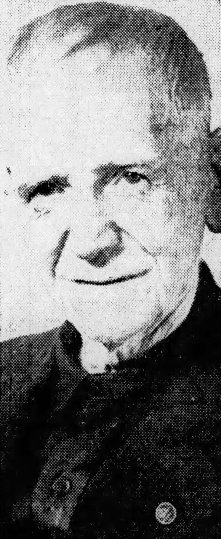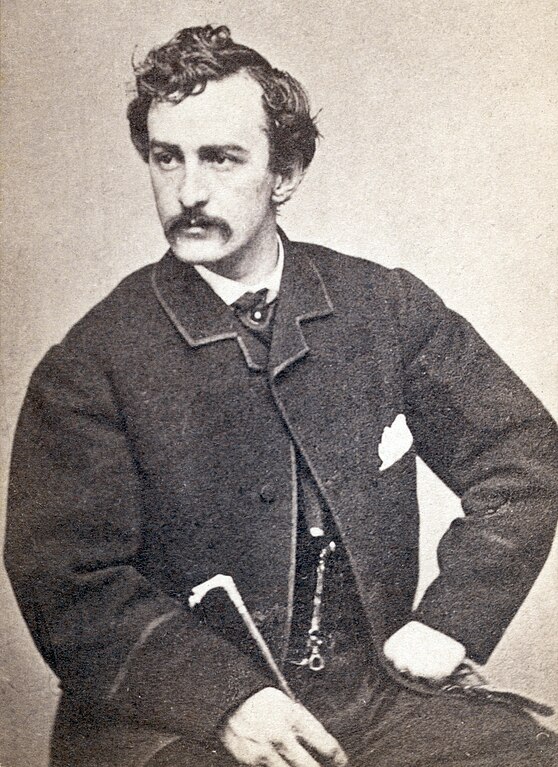Gig Harbor then and now | Local humanitarian packer spared by famous villain – Gig Harbor today

Arts and entertainment community
One of the stranger things you find in history is chains of influence. When you explore the past, you sometimes discover the most unexpected ways in which people or events have influenced the course of other events, sometimes much later. Each influence in a chain of events, no matter how big or small, becomes a link in the chain. Often, the closer you look, the more links you find. And the more you find, the longer the chain.
This week we present just a few links from two chains of indeterminate length. They have of course been specially selected because they are of particular interest, as we want to please all 10 of our regular readers.
A war veteran with a civic spirit
William H. Packer lived on the Peninsula for over 30 years, beginning just before the turn of the 20th century. After arriving in the area, he lived first in Glenwood, then in Burley, before moving to Gig Harbor in 1920, several years after his wife’s death. He had a varied background: he was a soldier, electrician, machinist, postmaster, farmer, and in retirement, the largest shareholder in the Gig Harbor Municipal Building. He was active in community affairs almost until the end of his 92nd year.

William Packer was a tireless supporter of the communities in which he lived. This photo accompanied his obituary in The News Tribune in 1937.
Packer was so busy helping others solve their problems that when, at the age of 75, he fixed an electrical fault in the printing works of a local weekly newspaper, the editor began his thanks in the next issue with the words: “WH Packer, whose main job seems to be to drive away trouble from other people’s doorsteps…”
The Civil War veteran actively supported the Peninsula community, both verbally, physically and financially. He regularly participated in public meetings, plays, dances and holiday celebrations, marched as a drummer in local parades, provided music in community halls with his hand-operated gramophone, donated money to charities and was known to treat various groups of children and adults to five-gallon buckets of ice cream.
During his years on the Peninsula, he had a positive influence on many people in different ways and to varying degrees.
But what influenced be Life path? What special events or experiences enabled him to reach old age and help countless others during that long life?
His encounter with one man holds the key to a large part of the answer. This man was perhaps the least likely to have had such a positive influence on young William Packer, since he had the opposite effect on another man several years later.
A life-saving lesson
As a teenager, Packer was fascinated by the theater and wanted to be an actor. In 1859, the 14-year-old learned the art of sword fighting in the northeastern United States during a stage production of Alexandre Dumas’ novel “The Three Guards” (now better known as “The Three Musketeers”). He credited this skill, and the man who taught it to him, with saving his life in one of the many battles he fought during the Civil War.
As a Union infantryman in the midst of the Battle of the Wilderness, one of the five worst battles of the war in terms of overall casualties, Packer suddenly found himself on foot without a rifle. In the chaos of the battle, which was largely hand-to-hand, with bullets flying, cannons barking, men screaming in fear and crying out in pain, the young soldier was charged with a sword by a Confederate mounted cavalryman. Thinking quickly, Packer had no choice. He quickly drew his own sword and thrust it toward his attacker’s horse. The animal reared, putting the rider in the path of a bullet that would otherwise have passed harmlessly over his head. The mortally wounded Confederate lost his grip on his weapon and fell from his horse. The enemy sword, descending only by gravity, struck Packer in the head as it fell to the ground.
Although the injury could have been fatal had the rider had control of the long blade when it landed on Packer’s skull, it was not serious and he lived to tell the tale for many years to come.
“I had learned by constant stage training to draw my weapon quickly and to handle it vigorously,” he told the Tacoma Daily Ledger in 1927. “The rebel was almost upon me before I saw him. If I had not been able to arm myself immediately, he would have struck me down before I had half drawn my sword from its scabbard.”
As he told the newspaper, his sword-fighting mentor did not teach the young actor the art as a favor. Quite the opposite. According to Packer, he had to learn to defend himself out of the man. “(He) was a surly, vicious character,” Packer told the newspaper. “On the stage he showed absolutely no consideration for his fellow actors. In ‘The Three Guards,’ he would have had no qualms about running us through with his sword if we hadn’t been able to defend ourselves. He was generally unpopular.”
Evidently, it was not concern for the boy or an urge to be helpful that prompted the man to force Packer to learn how to defend himself with a sword. The result, although beneficial to the teenager, was simply a byproduct of an ill-tempered man who cared for no one but himself. Only inadvertently and unkindly did he influence WH Packer’s life for the better, enabling him to survive the Civil War and extend kindness and aid to the residents of the Gig Harbor peninsula.
A notorious figure in history
The man who indirectly saved WH Packer’s life by forcing him to learn effective sword fighting training also did other, more consequential things. The result of his final insult to humanity was a series of infinitely larger links in a great chain of world history. The “surly, vicious type,” as William Packer described him, finally changed the course of US history in 1865 by assassinating President Abraham Lincoln.

In a bizarre twist of history, President Lincoln’s assassin, John Wilkes Booth, had a most unlikely positive influence on the Gig Harbor peninsula in the early decades of the 20th century. Photo by Alexander Gardner.
John Wilkes Booth, one of history’s most notorious murderers, played a crucial role — if not a noble one — in William Packer’s survival of the Civil War. It is one of the incredible twists of history that Packer’s later kindness to the people of the Gig Harbor and Key peninsulas would not have occurred had Booth not been such a depraved, self-centered, evil being.
Not every link in a historical chain is admirable. But the relative quality of a link is no indication of where the chain will ultimately lead. The two historical chains mentioned here by John Wilkes Booth were both rooted in self-serving madness, but one led to positive links in the course of history, while the other led to links of death, destruction, and years of national unrest.
However, this positive chain would not have been possible without the influence of William Packer’s kindness and genuine concern for the welfare of his fellow human beings.

The Tacoma Daily Ledger, July 3, 1927
Despite sometimes overwhelming odds, individuals can make a positive difference in lives and history. William Packer proved it, and the Gig Harbor Peninsula more broadly was the beneficiary.
Some examples
Here are just a few examples of William Packer’s involvement in the public affairs of the Peninsula, all from his later years:
- During World War I, in August 1918, he promised to donate ten dollars a month to the Red Cross for the duration of the war. On the occasion of his 73rd birthday, he also donated a “20-liter can of ice cream” to the ladies of the local Red Cross.
- In December of the same year he played Santa Claus at Burley Library Hall.
- In 1920, he donated five gallons of ice cream to the Burley PTA at its last meeting of 2015. He supported the Chataqua entertainment program in Gig Harbor and marched and played drums in the Burley Sunday School Parade and other events. At the end of the year, he sold his Burley property and moved to Gig Harbor after attending the National Convention of the Grand Army of the Republic (an association of Civil War veterans) in Indiana.
- In June 1921, he treated all the children attending the Flag Day celebration in Gig Harbor to ice cream.
- When the local community choir appeared on a radio show in Tacoma in 1923, he bought ice cream for the 30 singers. Also in 1923, he played his gramophone at the Gig Harbor Community Hall to provide dance music for the youth. He donated money to the Gig Harbor Methodist Episcopal Church hymn book fund, which was one-quarter of all the money raised. In the fall, he played his gramophone at the Burley Valley Fair and on New Year’s Eve at the Gig Harbor Community Hall.
- He played his Victrola at the Gig Harbor Children’s Community Hall in 1924.
I’m looking forward to
The subject of our next column on July 29th is the remains of the peninsula’s 100-year-old logging railway tracks. The question of the week concerns the location of a particular logging railway crossing.



